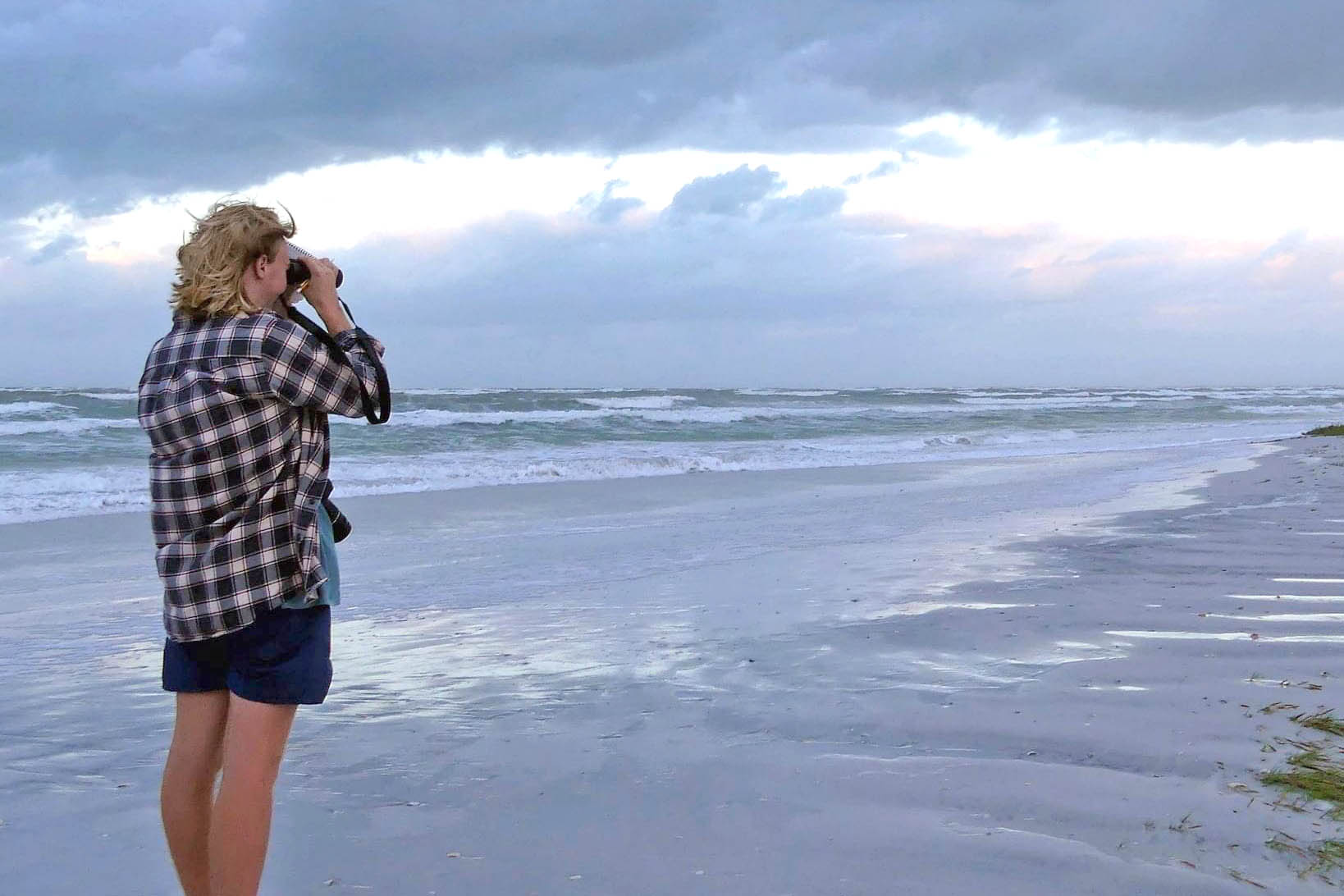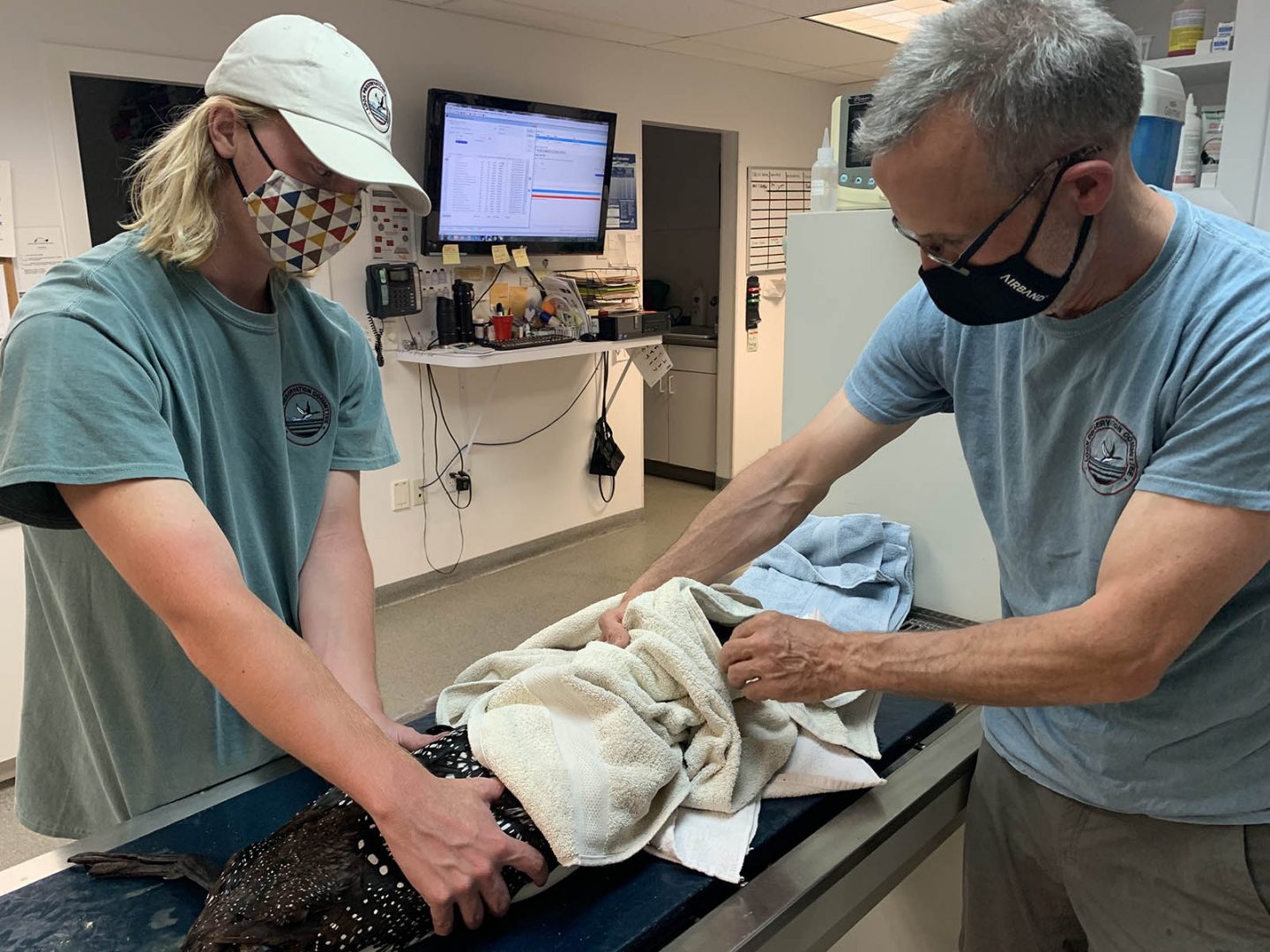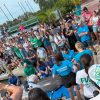Eckerd College senior Jayden Jech was only about 9 at the time, but even now, more than a decade later, he can still recall the smallest details.
“I remember setting up bird feeders outside and sitting on our kitchen counter and recording the different birds that came by,” he says. “That’s what I asked for, for Christmas. Birdseed. And this was Minnesota, so I had a heated bath for the birds.”
He pauses a moment and chuckles. “My nickname is ‘Bird,’” he says. “I had that before I started working with birds. I have a great photo of me and my dad paddling a canoe on the Mississippi. The Audubon Society was banding adult bald eagles, and we had to hold an eaglet as the scientists were completing the banding process.”
A biology and environmental studies student from Red Wing, Minnesota, Jayden faced a choice as his high school graduation approached. Would he choose a college in Minnesota, or would he be the first in his family to attend an institution outside the state? His father was director of a nearby environmental learning center, Minnesota is where he discovered his interest in birds and, as Jayden proudly points out, Red Wing is home to the world’s largest boot (a size 638-D, 16-foot-tall, leather tribute to the town’s century-old footwear company).
“But I remember knowing I wanted to be near the water and explore a place I’ve never been before,” Jayden says. “Somewhere completely different. I had never been to Florida, but when I looked at Eckerd College and its ‘ThinkOutside’ philosophy, I thought it would be the perfect spot.”
His parents thought so too. They helped him move in.
“I remember on my freshman tour seeing manatees in Frenchman’s Creek and pelicans flying over South Beach,” he says. “I knew I had to get involved, so I started volunteering on another student’s thesis about working with injured seabirds. And I just kept going.”
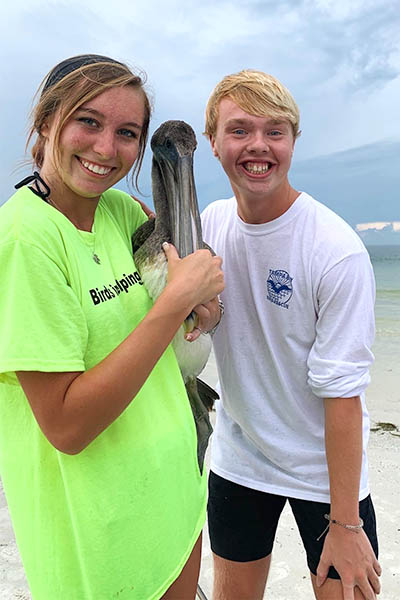
Jayden and Fairl Thomas ’21 rescue a brown pelican.
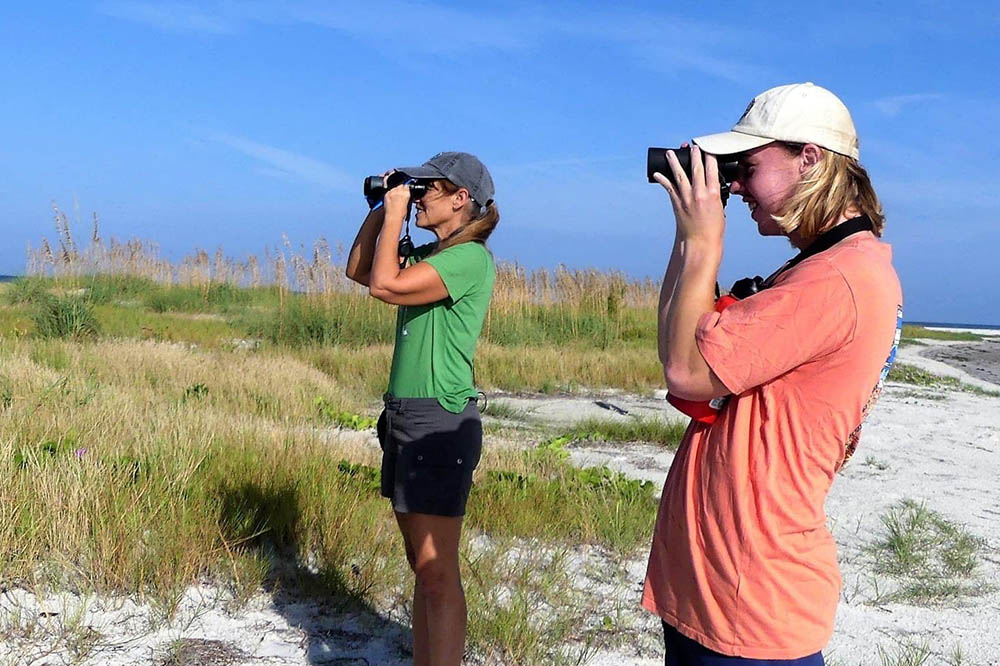
Jayden works in the field alongside Professor Forys. Photo: Lorraine Margeson
Not only will he graduate a year early, Jayden does volunteer work with the Florida Fish and Wildlife Conservation Commission, the St. Petersburg Audubon Society, and Birds in Helping Hands, a local nonprofit wildlife rescue group. Last summer he worked as a field biologist at the Loon Preservation Committee in New Hampshire.
He’s also an Eckerd tour guide, a teaching assistant, and he leads the Eckerd College Save Our Seabirds Club. “You never know when you’re going to get a call,” he says. “But fortunately, we have other student volunteers and we work with other nonprofits.”
Although his schedule is packed, he wouldn’t have it any other way. “Jayden immerses himself in the community he’s in,” says Sarah Duncan, Ph.D., assistant professor of biology, who is Jayden’s mentor. “He stood out to me from the beginning because he was looking for opportunities and how he could get involved, and taking those extra steps that have led to his success.”
Jayden says that not only did Eckerd allow him to follow his passion, he could start his research almost immediately. “My first year,” he says, “I’d only been here a couple months, and I ended up going with several other students on a Winter Term trip to Thailand with Dr. [Jeff] Felardo [associate professor of economics]. We did volunteer work at an elephant sanctuary. That’s amazing for a first-year student.
“A lot of my friends ended up staying close to home,” he adds. “That wasn’t in my cards. Now my younger sister wants to go here.”
Jayden is currently working on—among other things—his biology thesis on the foraging habitats of three imperiled plover species at Fort De Soto Park. “He is an exceptional student and researcher,” says Beth Forys, Ph.D., professor of environmental science and biology, and the Richard R. Hallin Endowed Chair of Natural Sciences. “Last year, he did research on the diving behavior of lesser scaup [a type of duck] and involved many students in his work.”
Jayden says he marvels at the grace and beauty of birds, but there’s something else that drives his work.
“Seabirds, and birds in general, are great indicators of overall environmental health, and they help us better understand ways to protect our oceans, coasts and other wildlife.”





